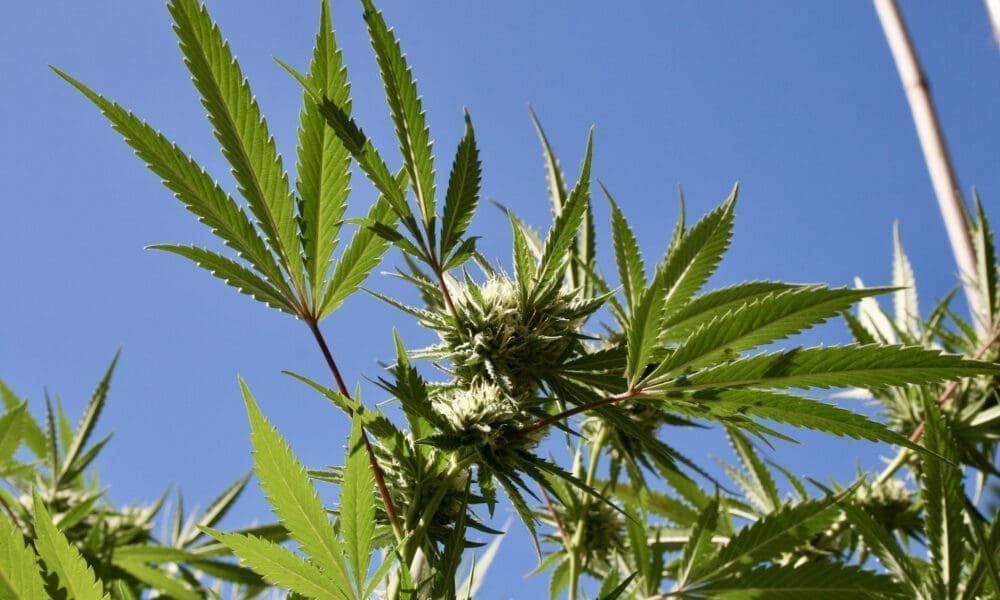Minnesota’s officials issued their first business license to sell recreational marijuana following the legalization of cannabis in 2023.
Office of Cannabis Management, (OCM), announced that Herb Quest, LLC, is a microbusiness engaged in the cultivation of herbs.
Interim Director Eric Taubel of OCM said, “Issuing the business license was a milestone in the history of the office.”
The first piece of Minnesota’s Adult-Use Market is now in place, he added. “Our first licensed cultivator can now begin growing plants and over 600 businesses are within the final stages of completing and receiving approvals from their local governments.”
OCM also said that it is taking additional steps to grow the cannabis industry and provide opportunities for entrepreneurs. This includes opening up a new window of licensing for testing facilities and accepting applications for licenses for marijuana events.
The licensing process for marijuana testing centers will begin on 1 August. In order to avoid delays, legislators enacted policy changes to the licensing process. This allows for such licenses being issued while applicants await accreditation by the International Standards Organization.
Max Zappia is the chief regulatory officer at OCM. He said, “ISO accreditation can be a long process. We wanted to make it easier for laboratories to gain entry into Minnesota’s marijuana market. This will also help other cannabis businesses get started with tested, safe products.” The ability to test products is crucial to the mission of OCM to create an industry with a focus on public safety and health, consumer trust, and integrity.
On August 1, applications for licenses to organize cannabis events will be accepted.
According to Minnesota’s law, marijuana events are only open to those 21 years and older. They cannot include alcohol sales or consumption. Cannabis events could include on-site sales and consumption of hemp edibles and lower-potency cannabis, as well as hemp-derived products.
Contrary to other license types the Event Organizer License is temporary. You will need to apply a new one for every event.
Governor Tim Walz (DFL) signed the measure into law late last month, just a few days after Minnesota legislators passed a new bill that would end criminalization for bong waters containing trace amounts of drugs. Tim Walz signed it into law at the end of last month.
Changes were made to an existing policy, which had permitted law enforcement agencies to view quantities of bongwater greater than four ounces of water as being equivalent to the uncut and pure version of any drug consumed using the device.
Last month, another Native American tribe in Minnesota opened Minnesota’s very first recreational legal marijuana shop. This was the state’s first ever outside of reservation. Next month, a second location will open in St. Cloud. The White Earth Nation will operate a shop in St.
The launch of the new shop comes after Walz signed of a landmark agreement last month to allow the tribe to operate up to eight retail marijuana stores across the state.
Minnesota’s 2023 cannabis legalization law allows tribes within the state to open marijuana businesses before state licensing of businesses begins. Following the law’s enactment, a number of tribal governments, including White Earth Nation, the Red Lake Band of Chippewa Indians and the Leech Lake Band of Ojibwe, made early moves to enter the market.
Separately as the new adult-use cannabis markets are being launched, more than 12 cities and counties want to start their own stores.
As many as 13 counties and cities have requested licenses for their marijuana shops. Anoka’s new $2.7-million facility broke ground in the last month. However, OCM’s final approval has not yet been granted.
St. Joseph and Osseo are two other cities that have applied for licenses in order to operate their own dispensaries. These municipalities reportedly wait until they receive licenses before starting construction.
—
MEDCAN24 tracks hundreds of marijuana, psychedelics, and drug policy legislation in state legislatures this year. Patreon subscribers who donate at least $25/month have access to the interactive maps and charts, as well as our hearing calendar.
Find out more about our marijuana law tracker. To gain access, become a Patreon supporter.
—
Minnesota’s law permits local governments to limit how many marijuana stores they allow in their areas, although it does require that there be at least one store per 12,500 people.
Separately in Minnesota, a state appeals court is set to decide whether state officials have the authority to prosecute tribal members for cannabis crimes committed on tribal land. This case involves a White Earth native who is accused of having sold cannabis at his tobacco shop on Mahnomen Reservation land.
In April, meanwhile, state officials moved to delay a separate drug reform—the opening of safe drug consumption sites, meant to allow people to use drugs in a safer, supervised setting.
At the time, a representative of the Department of Human Services Behavioral Health Administration (DHS), said that more work needed to be done at the state and federal levels before these services and programs could be implemented in a safe way for participants.
In March, lawmakers also filed legislation that would create a system to allow legal access to psilocybin for medical purposes. That came just days after the introduction of a separate bill that would legalize personal psilocybin use and possession among adults.
Alaska Activists Launch a Campaign to Legalize Psychedelics on the Ballot in 2026
Brian Shamblen is the photographer.





